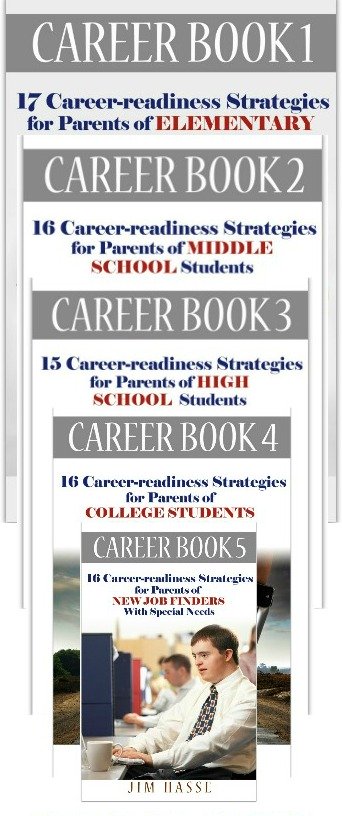EEOC: Cerebral Palsy
Career Builder for College Students
By Jim Hasse, ABC, GCDF, Disability Employment Expert
_________________________________________________________
Equal Employment Opportunity Commission (EEOC) guidelines determine what employers can and cannot ask about your college student’s cerebral palsy (CP) under the Americans with Disabilities Act (ADA) of 1990.
Your college student may have had recent job interviews which involved discussions about disability with prospective employers that he or she believes were not appropriate under the ADA. But neither of you may not be aware about what is accepted and what is not under the EEOC guidelines.
Here’s a quick set of fair, questionable and unfair job interview questions, based on the EEOC guidelines, which you and the college student you’re mentoring can use as indicators about whether an interview experience is on the up-and-up or dipping below the fairness (and illegal) level.
Always remember that the EEOC enforces the employment provisions of the ADA according to the following provisions.

Unacceptable application or interview questions
- “Do you have a physical
or mental disability which would interfere with your ability to perform this
job?”
Under Title I of the ADA, a job applicant can't be asked about the existence,
nature, or severity of a disability.
It prohibits questions about medical conditions; past hospitalizations; nature and severity of disabilities; and other related matters on job applications and in job interviews.
The ADA, however, does not require employers to give your son or daughter preference
just because he or she has a disability such as CP.
The law prohibits an employer from refusing to hire or promote or from taking
other adverse action against a person because of the person’s disability, if he
or she can perform the essential
functions of the job. It applies to private employers with 15 or more
employees and to state and local government employers.
An employer can, under the ADA, choose a person without a disability with more
experience over an individual with a disability, even if the individual with
the disability is qualified for the job.
An employer can choose a person without a disability over an individual with a disability, if the two individuals are equally qualified, as long as the choice was not made because of the individual’s disability.
The ADA prohibits
employers from asking questions that are likely to reveal the existence of a
disability before making a job offer (the pre-offer period). This prohibition
covers written questionnaires and inquiries made during interviews as well as
medical examinations.
However, such questions and medical
examinations are permitted after extending a job offer but before the
individual begins work (the post-offer period).
Employers may ask an applicant these questions after making a job offer as long as they ask the same questions of other applicants offered the same type of job. In other words, an employer cannot ask such questions only of those who have obvious disabilities.
Similarly, an
employer may require a medical examination after making a job offer as long as
it requires the same medical examination of other applicants offered the same
type of job.
An employer may tell all applicants what the hiring process involves (for example, an interview, timed written test, or job demonstration), and then ask whether they will need a reasonable accommodation for this process.
If the employer believes an applicant with an obvious disability will need a reasonable accommodation to do the job, it may ask the applicant to describe or demonstrate how she would perform the job with or without reasonable accommodation.
A fair question under the EEOC guidelines
- "Can you perform
the basic functions of this position with or without accommodation?"
An employer may ask you whether you can perform the job-related functions as
long as they don’t phrase the questions in terms of the disability.
For example, if driving a vehicle is a function of the job, the employer may ask if your college student has a driver’s license. However, the employer may not ask if your job seeker has a visual disability that would prevent him or her from driving.
A “questionable” question
for the EEOC
- “Why is there gap in your employment history between 2005 and 2007?
Under the ADA, potential employers cannot ask certain questions at a job interview that would result in the applicant revealing information about the existence or nature of a disability.
Questions about gaps in employment history are likely to lead to information about an applicant’s disability and are, therefore, arguably illegal. However, until the courts and EEOC clarify the issue, the law on this question is unsettled.
How to react to unacceptable questions
Unfortunately,
despite wide dissemination of the EOCC guidelines, some employers persist in
asking questions that are prohibited under the ADA. This places job applicants such
as your son or daughter with CP in the uncomfortable position of deciding how
to respond.
My recommendation to pass along to you college student: Try to determine what type of information an employer is looking to receive with such prohibited questions.
For
example, an interviewer asking about children and their ages may be trying to find
out if an applicant would likely be missing work to care for them. The job
candidate might simply answer, “I no problem meeting the position's attendance
requirements.”
In deciding to pursue a job despite questionable interview questions under the EOCC guidelines, your son or daughter may choose to simply refuse to answer certain questions in a non-confrontational manner.
For instance, your job seeker could state, “I read about a law that prohibits questions of this type during job interviews.” Such a response avoids answering the question and avoids the discussion about disability.
If the main goal is to get the employer to change the illegal interview process, then filing a detailed complaint with the EEOC or state or local human rights agencies is appropriate.
At any rate, your soon-to-be job seeker needs to study the EOCC guidelines, be able to recognize when job interviewing is going off on the wrong track and know how to respond effectively.
Return from EEOC to Interview Tips
Go to Cerebral Palsy Career Builders
This is Creative Commons content. You can freely and legally use, share and repurpose it for non-commercial purposes only, provided you attach this sentence and the following attribution to it (including the two links):
Originally written and illustrated by Jim Hasse, ABC, GCDF, owner of Hasse Communication Counseling, LLC, who, as a person with cerebral palsy, served for 10 years as a vice president in a Fortune 500 company during his 29-year career in corporate communication. He’s an Accredited Business Communicator, certified as a Global Career Development Facilitator and author of 14 Amazon books about disability awareness and disability employment issues.





